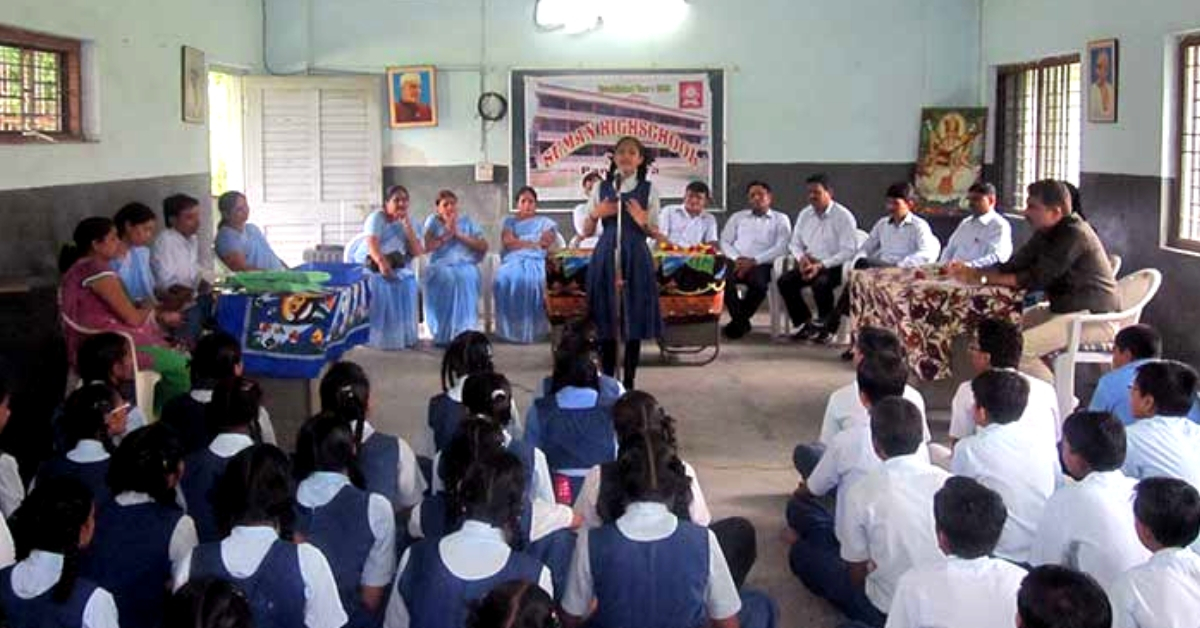Migration is a hot topic in the state of Gujarat following recent attacks on labourers from north Indian states, particularly in the city of Surat.
These attacks stem from reports that a man from Bihar has been named a suspect in the rape and murder of a toddler in Surat.
Surat is special when it comes to migrants though.
Nearly five lakh migrants from different Indian states make up a significant chunk of the workforce plying their trade in Gujarat’s industrial units.
In the city of Surat, for example, migrants make up 70% of the city’s workforce, while in Ahmedabad, the figure touches 50%, according to Chinmay Tumbe, an assistant professor of Economics at the Indian Institute of Management-Ahmedabad, who recently published his seminal book ‘India Moving: The History of Migration’.
These cities have a higher proportion of migrant workers than probably any other in India.
Despite the current animosity some sections of Gujarati society might have against workers from other states, municipal authorities in Surat are catering to the city’s migrants by running over 120 special schools for them.
“For more than ten years, we have been running different language-medium schools for children of migrants,” says Gayatriben Jariwala, Assistant Municipal Commissioner of the Surat Municipal Corporation, in a conversation with The Better India.
In schools catering to students from Class I-VII, the numbers are particularly significant.
There are 55 Marathi medium schools with 28,251 students; 28 Urdu-medium schools with 15,961 students; 7 Odia-medium schools with 3,537 students; 25 Hindi-medium schools with 15,025 students, 3 Telugu-medium schools with 217 students; and 9 English-medium schools with 3,105 students, according to the SMC.
This amounts to over 65,000 students from just Classes I to VII. Add SMC-run Suman Schools catering to secondary education and that figure increases by almost another 5,000.
These numbers shouldn’t surprise you. The city’s rich entrepreneurial tradition, particularly its famous diamond, textiles, construction and a plethora of informal sectors, has attracted a large number of migrants from states like Bihar, Odisha, Uttar Pradesh, Jharkhand, Maharashtra, Rajasthan, Madhya Pradesh and Andhra Pradesh, among others.
Speaking to the Times of India, Tumbe also claims that historically states like Gujarat and Punjab “have harboured fewer anti-immigrant sentiments as they are known to be migrating across the globe extensively”.
Coming back to the SMC’s education initiative for migrant children, Jariwala tells The Better India that the allocation of non-Gujarati medium schools in the city is based on which part of the city they’re concentrated in.

“In Udhna, a suburban area of Surat, we have a large concentration of Odia-medium schools, whereas the Limbayat area has a large proportion of Marathi-medium schools. In other words, different language-medium schools according to their local requirement. It’s more about where different sections of people live in the city. Of course, we started with Gujarati medium, but in areas where there is a high number of Marathis, we started Marathi-medium schools,” says Gayatri.
“Since migrants are sometimes unable to adjust in Gujarati medium or English medium schools, and since sometimes they can’t afford a private school education, we got the idea of opening different language-medium schools for migrants,” adds Gayatri.
Did SMC authorities face opposition from locals considering the great pride they take in the Gujarati language?
“Absolutely not. There is no opposition from locals because the city in its essence is very cooperative to migrants and they are ready to engage with these children. Why should they oppose? Education is a must for everyone in India, if children have trouble learning in local language, facilities must be made available to them,” says Gayatri.
This sentiment harks back to what Tumbe said earlier about the state harbouring fewer anti-immigrant sentiments because of how they’ve made their mark around the world of commerce.
“Once the city caters to the educational and health requirements, people will take the option of bringing their families to their place of work and for any city that’s a good thing,” adds Gayatri.
Also Read: IIT Gold-Medalist Quits a Cushy Job To Transform School Kids Into Changemakers!
On the subject of qualitative education and teacher-student ratio, however, questions remain, but what we are seeing here is a city willing to accommodate children from around the country and not denying them basic education.
Such an initiative should be extended to other states as well.
“Actually, when we offer proper education in a child’s local language, they can flourish, digest the subject better and acquire maximum knowledge. This will keep them in good stead in the long run,” says Gayatri.
(Edited by Vinayak Hegde)
Like this story? Or have something to share? Write to us: contact@thebetterindia.com, or connect with us on Facebook and Twitter.
If you found our stories insightful, informative, or even just enjoyable, we invite you to consider making a voluntary payment to support the work we do at The Better India. Your contribution helps us continue producing quality content that educates, inspires, and drives positive change.
Choose one of the payment options below for your contribution-
By paying for the stories you value, you directly contribute to sustaining our efforts focused on making a difference in the world. Together, let's ensure that impactful stories continue to be told and shared, enriching lives and communities alike.
Thank you for your support. Here are some frequently asked questions you might find helpful to know why you are contributing?
